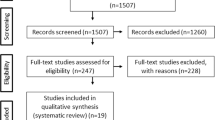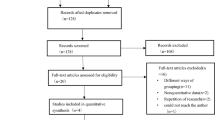Abstract
Background:
There is experimental evidence that riboflavin (vitamin B2) supplementation reduces oxidative damage and cerebral oedema following acute stroke.
Objective:
To measure riboflavin levels in acute stroke before and after supplementation with this vitamin.
Design:
Ninety-six acute ischaemic stroke patients had their riboflavin status measured at baseline and then randomly assigned to receive 5 mg of oral riboflavin and other B-group vitamins within 12 h of the stroke onset and then daily or no B-vitamins for 14 days. Non-fasting venous blood was obtained at baseline, days 7 and 14 post-randomization for measurement of riboflavin status using erythrocyte glutathione reductase activity coefficient (EGRAC). EGRAC is a measure of riboflavin tissue saturation. This assay has the advantage of being extremely stable and sensitive. EGRAC values are inversely proportional to riboflavin status, so that values greater than 1.3 indicate biochemical deficiency.
Results:
Fifty-one per cent of patients studied were riboflavin deficient at baseline. Fourteen days of riboflavin supplementation significantly improved the measure of B2 status compared with the control group. Seven out of 37 patients in the supplement group (19%) were riboflavin deficient compared with 22 out of 39 patients (56%) in the control group at the end of the treatment period (P=0.035 for the differences in cumulative changes between groups over 2 weeks).
Conclusions:
A high proportion of acute stroke patients were biochemically deficient of riboflavin immediately post-infarct. Supplementation with 5 mg of riboflavin for 2 weeks significantly improved riboflavin status; however, the clinical significance of these findings is not yet known.
This is a preview of subscription content, access via your institution
Access options
Subscribe to this journal
Receive 12 print issues and online access
$259.00 per year
only $21.58 per issue
Buy this article
- Purchase on Springer Link
- Instant access to full article PDF
Prices may be subject to local taxes which are calculated during checkout


Similar content being viewed by others
References
Bamford J, Sandercock P, Dennis M, Burn J, Warlow C (1991). Classification and natural history of clinically identifiable subtypes of cerebral infarction. Lancet 337, 1521–1526.
Betz AL, Ren XD, Ennis SR, Hultquist DE (1994). Riboflavin reduces edema in focal cerebral ischemia. Acta Neurochir Suppl (Wien) 60, 314–317.
Finch SDW, Lowe C, Bates CJ, Prentice A, Smithers G, Clarke PC (1998). National Diet and Nutrition Survey of People Aged 65 Years and Older vol. 1. The Stationary Office: London.
Hankey GJ, Eikelboom JW (1999). Homocysteine, vascular disease. Lancet 354, 407–413.
Hoane MR, Wolyniak JG, Akstulewicz SL (2005). Administration of riboflavin improves behavioural outcome and reduces oedema formation and glial fibrillary acidic protein expression after traumatic brain injury. J Neurotrauma 22, 1112.
Homocysteine Studies Collaboration (2002). Homocysteine, risk of ischaemic heart disease, stroke: a meta-analysis. JAMA 288, 2015–2022.
Hultquist DE, Xu F, Quandt KS, Shlafer M, Mack CP, Till GO et al. (1993). Evidence that NADPH-dependent methaemoglobin reductase, administered riboflavin protect tissues from oxidative injury. Am J Haematol 42, 13–18.
Mack CP, Hultquist DE, Shlafer M (1995). Myocardial flavin reductase and riboflavin: a potential role in decreasing reoxygenation injury. Biochem Biophys Res Commun 212, 35–40.
McNulty H, Dowey LC, Strain JJ, Dunne A, Ward M, Molloy AM et al. (2006). Riboflavin lowers homocysteine in individuals homozygous for the MTHFR 677 TT. Circulation 113, 74–80.
Powers HJ, Bates CJ, Duerden JM (1983). Effects of riboflavin deficiency in rats on some aspects of iron metabolism. Int J Vitam Nutr Res 53, 371–376.
Ullegaddi R, Powers HJ, Gariballa SE (2006). Antioxidant supplementation with or without B-group vitamins after acute ischaemic stroke. JPEN 30, 108–114.
Acknowledgements
This study was supported by a grant from Sheffield Teaching Hospital NHS Trust, UK.
Author information
Authors and Affiliations
Corresponding author
Additional information
Guarantor: S Gariballa.
Contributors: SG was the lead investigator and prepared the first draft of the paper. RU undertook subjects’ recruitment and assessments. All investigators were involved in the study design and writing of the paper.
Rights and permissions
About this article
Cite this article
Gariballa, S., Ullegaddi, R. Riboflavin status in acute ischaemic stroke. Eur J Clin Nutr 61, 1237–1240 (2007). https://doi.org/10.1038/sj.ejcn.1602666
Received:
Revised:
Accepted:
Published:
Issue Date:
DOI: https://doi.org/10.1038/sj.ejcn.1602666
Keywords
This article is cited by
-
Riboflavin in Neurological Diseases: A Narrative Review
Clinical Drug Investigation (2021)
-
Attenuated neuroprotective effect of riboflavin under UV-B irradiation via miR-203/c-Jun signaling pathway in vivo and in vitro
Journal of Biomedical Science (2014)



